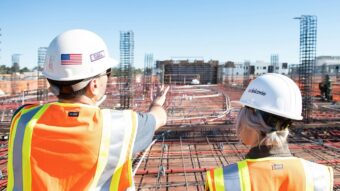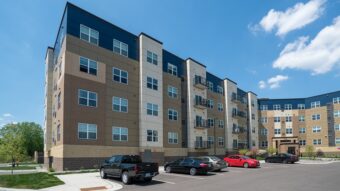By Jason West, SIOR
Supply and demand, on the surface, are two simple factors that together influence industrial real estate pricing for sales and leases, and shape the new development landscape. But once you scratch the surface, there’s a lot more to the market than meets the eye.
Global trade, institutional capital preferences, consumer spending, politics and e-commerce trends all impact when and where new industrial developments emerge, the specific building design features —and the pricing for the space, as well.
The industrial real estate market is increasingly complex and difficult to predict yet the sector continues to perform extremely well when you look at vacancy rates, new-construction pipelines, institutional capital investment and absorption across most U.S markets.
I am bullish on 2017. However, the skeptics are talking about the next real estate bubble that seems to be building. As the year shapes up there could be more pitfalls than perhaps there were in the immediate past, so it’s more important than ever to have informed transaction professionals on every project team.
Asking the right questions
What’s different this year is that macro-economics and geopolitics stand to shape the Chicago industrial market in more ways than they did in the past, so there could be more unexpected surprises as the year moves forward. In this environment, owners and investors in commercial real estate should expect more than surface-level pricing and availability information from their advisors.
Providing good counsel in 2017 will mean interpreting a series of more nuanced economic trends that could shape Chicago’s industrial landscape for years to come. A few potentially market-moving topics that participating real estate professionals with the SIOR (Society of Industrial and Office Realtors) designation are talking about this year include the following:
- Global trade. Trade policy can profoundly influence the flow of goods between the United States and other countries—both consumer goods and heavier industrial materials. With global trade a primary agenda item for the new presidential administration, it’s important to have an advisor who can provide an informed and measured analysis of the headlines for their impact (short- and long-term) on any given location choice or investment.
- E-commerce trends. Rapidly evolving as consumer demands become more aggressive, e-tailers and traditional retailers alike are shifting their distribution strategies at a breakneck pace. What they needed last holiday season may be vastly different from this holiday season, and long-term needs are shifting equally as fast, as they adjust to an omni-channel retail/e-commerce unified approach.
- Capital availability. Commercial lenders are pulling back and interest rates are rising. Some planned projects may not be funded, or they may be funded with a more complex structure that changes building requirements or investment pro-formas. Investors and owners may need to explore alternative sources of debt and equity particularly on new construction. An educated advisor is critical throughout the process.
- Infrastructure investments. Investments in infrastructure, something that has been making headlines throughout late 2016 and early 2017, can profoundly impact industrial real estate, since the supply chain for most products involves multi-modal transportation which is heavily dependent on access to quality road, rail and air infrastructure. The location and scale of infrastructure investment can create winners and losers in terms of submarkets within the Chicago area, as well as across the country.
- There is a very diverse economy and population base in the Chicago metro area and a diverse mix of skilled and unskilled labor. With labor policy under review by the current administration, it’s important to keep close tabs on the local price of construction labor, and its impact on building costs, particularly in new construction. Additionally, industrial users that operate in multiple States may make location decisions that consider cost and availability of labor as key factors in their decision to choose Illinois or other states.
Chicago SIOR’s are looking forward to another healthy year for commercial real estate in the Chicago area. With stringent education and deal-making criteria, the SIOR designation is one sign to look for, when seeking an educated advisor.
Jason West, SIOR, is the 2017 president of the Chicago Chapter of SIOR (the Society of Industrial and Office Realtors). He is also an executive managing director of brokerage services with the Rosemont, Illinois, office of Cushman & Wakefield.



